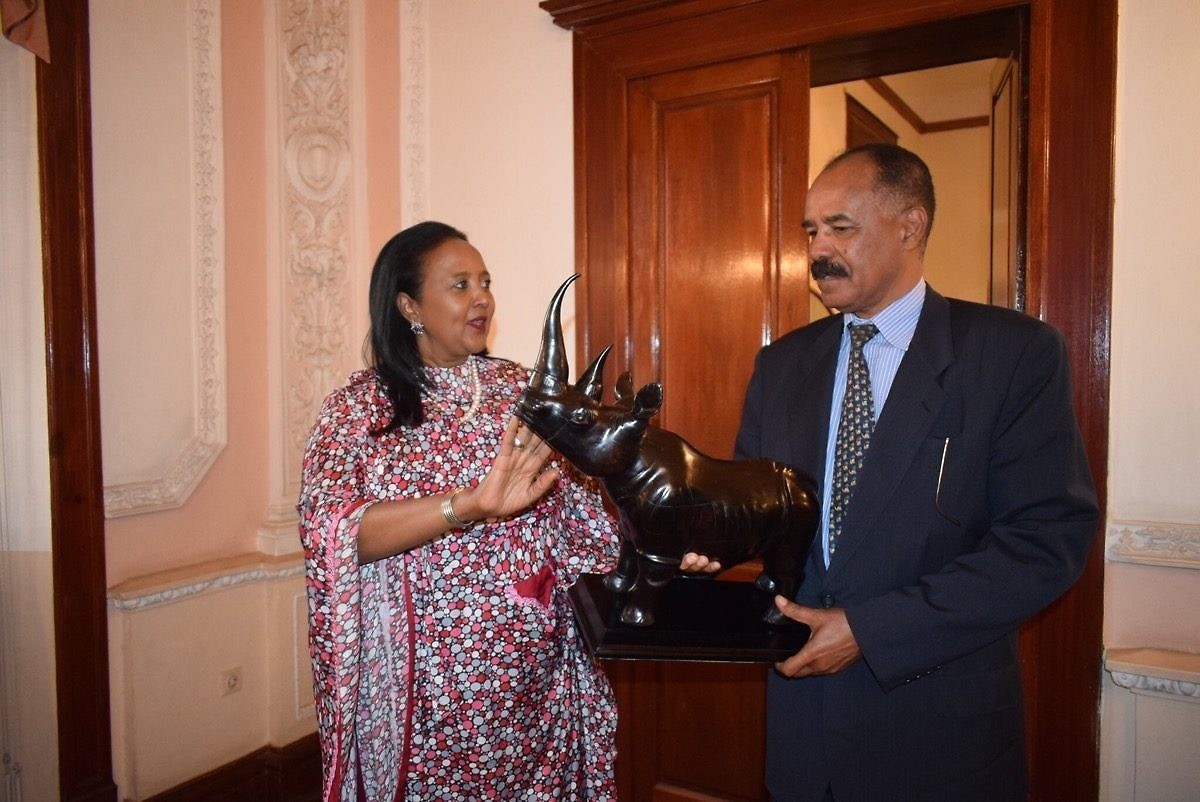
In a move that combines the continental politics of the African Union (AU) and the chummy good ol’ boy networking of the United Nations, the State of Eritrea, a serial violator of human rights, was elected to join the UN’s Human Rights Council for the 2019-22 term.
First, a refresher.
The United Nation’s Human Rights Council (HRC) is composed of 47 UN member states which are elected directly and via secret ballot by a majority of the 197-member UN General Assembly.
The term is for 3 years. The maximum consecutive terms a country may sit at HRC is two (i.e. total of six years), after which, it must sit-out at least one term before it is eligible to sit for candidacy.
HRC also has geographical quota system, which is as follows:
Africa Group: 13 seats
Asia Group: 13 seats
Eastern Europe Group: 6 seats
Latin America & Caribbean Group: 8 seats
Western Europe and “Other” States: 7 seats.
(“Other” are countries not in Western Europe but might as well be: Canada, Australia, New Zealand, Israel and, until its recent withdrawal, USA.)
The three-year terms are on rotating basis so that, every year, roughly a third of the 47 members’ terms come up. Thus, this year, 18 countries are either joining or extending their term for another 3 years.
The Africa Group
In 2018, the countries which make up the Africa Group of the Human Rights Council, and the year their terms end, are as follows:
Burundi: 2018
Côte d’Ivoire: 2018
Ethiopia: 2018
Kenya: 2018
Togo: 2018
Egypt: 2019
Rwanda: 2019
South Africa: 2019
Tunisia: 2019
Angola: 2020
Democratic Republic of the Congo: 2020
Nigeria: 2020
Senegal: 2020
That is, five of the thirteen seats are up for elections. They can either be replaced by another African country or, if eligible and are appointed/elected again, hold the seat for another three years. From the 5 African countries whose term is expiring, three countries are not eligible since they have held the post for the maximum two terms (6 years.) They are: Côte d’Ivoire, Ethiopia and Kenya. The remaining two are eligible for renewal of term: Burundi and Togo.
The Africa Group (just like the rest of the HRC groups) decided this year to nominate only one candidate for each vacancy. That is to say, for the five seats allocated to Africa, the General Assembly were given only five candidates to vote on. It was a closed slate. Of the two that were eligible to return, Togo returned and Burundi either didn’t want to run again or was asked not to.
This leaves us with four seats.
Of the four vacant seats, two are from Francophone (West) Africa and two from East Africa. And, per the continental politics of the African Union (recall the last time the AU had to elect its chairman), they had to be replaced by two East African countries and two West African countries. (Next year when the terms of Egypt, Tunisia, South Africa come up, it will be North-South replacement.)
Focusing on East Africa:
Ethiopia: disqualified, because it served two terms
Kenya: disqualified, because it served two terms
Djibouti: eligible (last elected 2009-12)
Eritrea: eligible (never elected)
Somalia: eligible (never elected)
Uganda: eligible (last elected 2010-13)
Tanzania: eligible (never elected)
Sudan: eligible (never elected)
South Sudan: eligible (never elected)
Rwanda: serving (2016-2019)
Burundi: just served (2015-2018)
Mauritius: eligible (last elected 2009-12)
The Africa Group presented the UN General Assembly a slate of two West African countries (Burkino Faso and Cameroon), and two East African countries (Eritrea and Somalia.) Togo continues to hold its seat. That is: 5 candidates for 5 slots and all 5 were voted in by a majority of the UNGA. In essence, Eritrea was not chosen by the UN; it was chosen by the AU; and the AU had limited choices from the East Africa Group. So, in many ways, Eritrea’s election to the Human Rights Council is the result of the process of elimination, continental politics and the forces of “engagement” who actually think they can modify the behavior of a tyrant of coddling him.
The Farce
While many of the countries who sit (and have sat) on the Human Rights Council have no business being there, the case of Eritrea is particularly egregious.
According to the UN’s own criteria for who should be elected to the HRC, “members elected to the Council shall uphold the highest standards in the promotion and protection of human rights, shall fully cooperate with the Council and be reviewed under the universal periodic review mechanism during their term of membership.”
The Government of Eritrea is notorious for its total disregard to human rights (abducting and disappearing even minors) and it has repeatedly failed to cooperate with UN instruments such as the Commission of Inquiry on Human Rights as well as the Special Rapporteur on Human Rights in Eritrea.
Ironically, the Human Rights Council was supposed to be an improvement over the institution it replaced in 2006, the Human Rights Commission. But the elevation of Eritrea to the UN’s highest body on human rights makes a mockery of the mission of HRC and continues to erode its moral authority.